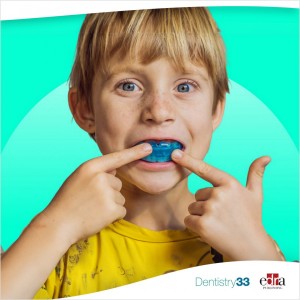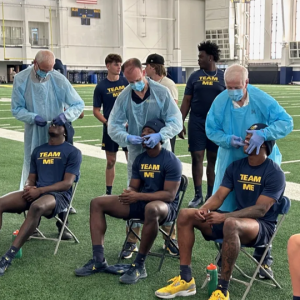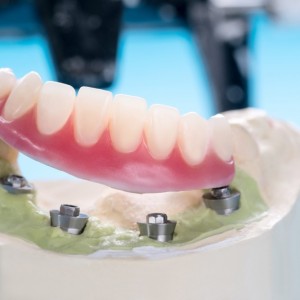
Sports mouthguards
The FDI World Dental Federation (FDI) adopted new policy statements during the 2022 World Dental Parliament held in Geneva, Switzerland. The statements are aimed at laying out the current thinking on various oral health-related issues and policies, as well as the dental profession.
FDI Policy Statements are created following consultation, discussion and consensus among leading dental experts from around the world, with many of them being led by FDI’s Standing Committees. This policy statement was published online January 16, 2023, in the International Dental Journal.
View the entire statement, including definitions at: “Sports Mouthguards.”
Context
Engagement in sports is universal, and new sports are developing regularly. The nature of some sports leads to the potential for trauma to both hard and soft oral tissues, including lips, teeth and the masticatory apparatus, resulting in high costs of trauma management.
A mouthguard is an essential piece of equipment for people engaging in contact and collision sports in which orofacial injury patterns are to be expected. With the evolution of technology and the development of new materials, the quality of mouthguards has evolved significantly.
Scope
A mouthguard is one of the best protection measures against oral trauma in sports. This policy statement outlines the basic principles of mouthguard design and use with a view to optimize protection.
Principles
Studies have consistently shown that custom-made mouthguards with adequate labial and occlusal thickness offer significant protection against intraoral injuries by providing a resilient, protective surface to distribute and dissipate impact forces. Moreover, a high-quality mouthguard can allow the optimization of sports performance.
Policy
FDI recommends people of all ages use a mouthguard while participating in any contact or collision sports or activities, especially as soon as a child's permanent upper front teeth have emerged.
National dental associations, with the cooperation of national sports federations, should promote to the public the benefits of sports mouthguards, including the prevention of orofacial injuries.
Those involved in the oversight of contact or collision sports — sports associations, coaches, teachers, parents and guardians — should be encouraged to check that a mouthguard is properly worn by sports participants.
The dental team should know how to recommend, provide and guide patients in the choice, use and care of mouthguards relevant to the sport or activities practiced by their patients.
FDI highlights the importance and the role of mouthguards in the following:
- Protecting the soft tissues (tongue, lips, and cheeks) from injury
- Reducing the risk of injury to teeth and other hard tissue structures
- Preventing violent and destructive impact on teeth between the two arches, and
- Reducing the risk of concussion.
FDI recommends the minimum required properties of the mouthguard to:
- Provide good absorption and dispersion of impact forces
- Fit comfortably over the arch with respect to the soft tissues
- Occupy edentulous spaces
- Provide full occlusal coverage to avoid undesirable tooth movement
- Be as thin as possible, while ensuring maximum effectiveness related to the sport practiced
- Be comfortable, odorless, tasteless and biocompatible
- Have good retention, and
- Not interfere with phonation or breathing.
FDI recommends the use of a custom-made mouthguard when engaging in contact and combat sports or sports that may be considered risky or extreme depending on national classification, even if only participating in the sport occasionally.
- FDI emphasizes the role of the dentist in educating patients about the importance of wearing a mouthguard when participating in contact or combat sports, even occasionally.
- Only a dentist or a member of the dental team working to a dentist's instruction can provide the custom-made mouthguard. The mouthguard should be assessed periodically and at least once a year by such a person.
- FDI encourages the use of new-generation materials and customization. Mouthguards made by injection or additive layering techniques of ethylene vinyl acetate (EVA) are highly recommended to be the most effective and resistant,3 especially for heavy-contact sports.
- The mouthguard should be considered a dental device and be part of the dentist's and dental team's education and training (indications, fabrication, etc.).
 Related articles
Related articles
Editorials 15 May 2024
Mouthguards Protect Your Mouth—and Potentially Your Brain—from Sports-Related Injuries
Matthew Mauck, DDS ’11, says it’s funny that he’s a dentist. Back when he played professional football, he thought wearing a mouthguard was annoying. Now the former NFL and MLB player spends...
Products 21 November 2023
quip Launches Custom-Fit Mouth Guards and Whitening Solutions
Today, quip, the modern oral health company that offers everything you need to keep your mouth healthy, is launching custom-fit Night Guards, Sports Guards, and Whitening solutions to provide...
Editorials 03 November 2025
It’s been more than 65 years since the late Dr. William Godwin, a University of Michigan School of Dentistry faculty member, embraced the challenge of how to protect athletes’ teeth from injury....
Editorials 11 March 2024
Thomas Porter, D.M.D., a clinical professor in the UF Department of Community Dentistry & Behavioral Science, passed away on Friday, February 23, in Kentucky with family members by his...
Oral surgery 24 September 2023
Sport injuries can negatively impact physical and psychological aspects of athletes. There is a gap in the literature regarding facial trauma present in basketball.
 Read more
Read more
Prosthodontics 17 November 2025
The purpose of this report is to describe a new technique to fabricate and deliver an implant-supported fixed prosthesis to the patient on the day of surgery, and to propose a protocol for the...
Editorials 17 November 2025
The Langkamp Allison Award recognizes a Pitt Dental Medicine third-year dental student interested in pursuing a career in dental education.
Products 17 November 2025
VELMENI today unveiled VELMENI Voice, an AI-driven voice recognition tool designed to transform periodontal charting and clinical documentation.
News 17 November 2025
Angelalign Technology Inc. (6699.HK) (“Angel”) recently announced the expansion of its flexible iOrtho platform to include direct integration with the Dexis, Shining 3D, and Panda scanners.
News 17 November 2025
Following the first FDA clearance for technology that measures internal mobility in teeth, Perimetrics CEO and Chairman Robert Hayman is once again leading dentistry into a new era with InnerView, a...














